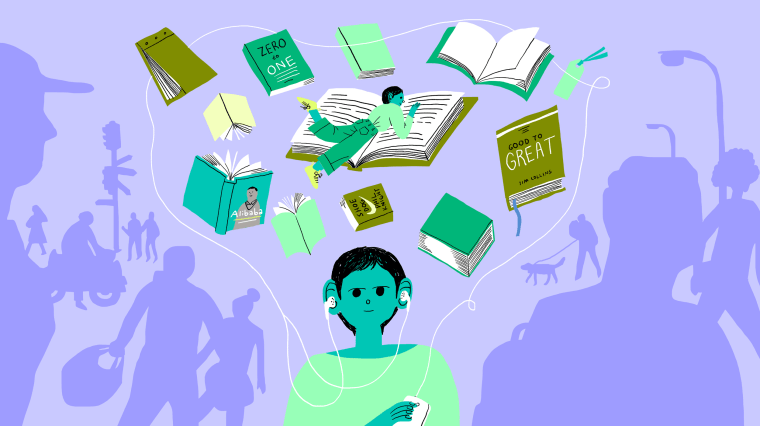When Apple released the “Time Spent” feature in a recent iOS update, I was absolutely disgusted by the wasted hours I had logged endlessly scrolling through Instagram, Facebook, LinkedIn, Twitter and Snap.
There was absolutely no value or benefit in spending this much time on social media. The offer from tech companies is that by using their products you will become more "connected to your community". Yet hours tethered to my phone left me feeling completely disconnected.
In her book "Love Your Life, Not Theirs", personal finance author Rachel Cruze summarizes the feeling that social media can have on a user this way: “When you’re caught up in social media comparisons, you’re comparing yourself to make-believe. When you compare yourself to make-believe, your real life will never feel good enough.”
There have been so many tricks and trends claiming to help you kick the habit and start fresh. Some of my favorites were “delete the apps from your phone” and “don’t check your phone after 6 p.m. to get a better night sleep”. But there was one big problem.
Eschewing my phone wasn't an option
As a television producer at NBC News, uninstalling the apps wasn’t a feasible solution, as I use them to gather stories, connect with sources and share content. Also, not being on my phone for several hours just didn’t seem practical.
One solution that intrigued me was supplementing the endless scrolling of feeds with another activity on the phone that provided more utility. Some examples include reading e-books, learning a new language, playing puzzles and trivia games.
Earlier this year, a friend suggested I start listening to audiobooks. I initially disregarded the idea, thinking it may be tough to start/stop books on the go. Also, how much information can you actually retain from listening versus reading?
Despite my objections, my friend convinced me to give it a try. I downloaded the Audible app and the book “Shoe Dog” by Phil Knight.
Since adopting these new strategies, and by moving social media apps off of my home screen, I have reduced my time spent on social media by 85 percent.
The next morning on my commute to work, I listened to the audiobook for about 30 minutes. At first, it was a tough adjustment. My natural reflex whenever my subway stopped was to pull up Twitter and start scrolling for updates. This time, I was pulled into the narrative and kept my phone in my pocket. The audiobooks had become a welcome distraction from the constant buzz of social media.
Soon, I was chewing through one book after another. So far this year, I have finished eight different audio books and have spent about 41 hours listening to non-fiction books that align with what I cover at work as a business and technology producer.
The results for me have been amazing. I’ve started listening to more audiobooks, and now podcasts, throughout my day. I’ve even turned off my sacred workout playlists to listen to non-fiction audio books.
Is listening a better binge?
But, was my new binge listening actually doing anything to my brain?
“If you're looking to increase your literacy skills, and get exposure to more grammatical styles — it doesn’t matter if you are reading or [listening to] spoken language — in principle these skills will increase.” says Dr. Jennifer Arnold, PhD who is a professor in the Department of Psychology and Neuroscience at UNC Chapel Hill.
Dr. Arnold also points out, “We know that reading aloud to children is helpful in building language skills and reading comprehension” and that the same principle may apply to adults. However, there isn’t enough research available to make a conclusion that audiobooks are better or worse than traditional reading.
We know that reading aloud to children is helpful in building language skills and reading comprehension, and that the same principles may apply to adults.
Dr. Jennifer Arnolds
Although I have tried listening to fiction audio books, I find that listening to non-fiction can be more pleasant when on-the-go. The reason is fiction may require closer concentration for plot points, where business books and non-fiction can be more forgiving when multitasking.
Since adopting these new strategies, and by moving social media apps off of my home screen, I have reduced my time spent on social media by 85 percent.
Want to give audiobooks a try? Here's Michael's "reading list"
- "Shoe Dog" by Phil Knight
- "Alibaba: The House That Jack Ma Built" by Duncan Clark
- "Zero to One: Notes on Startups" by Peter Thiel and Blake Masters
- "Good to Great: Why Some Companies Make the Leap...and Others Don't" by Jim Collins
“The Creative Curve: How to Develop the Right Idea, at the Right Time” by Allen Gannett
MORE FROM BETTER
- In defense of social media: The amazing real-life experiences I've had thanks to Instagram
- How to relax and tap into a zen feeling (almost) instantly
- How to take a mental health day
- I tried the 'The Miracle Morning' productivity routine for a month. Here's what happened.
Want more tips like these? NBC News BETTER is obsessed with finding easier, healthier and smarter ways to live. Sign up for our newsletter and follow us on Facebook, Twitter and Instagram.
